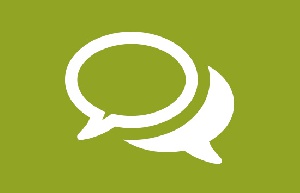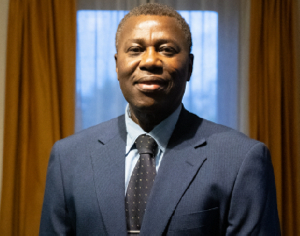I have of late been very critical about tribalism and tribal institutions in Ghana but most of you could not understand the reason for my obsession. In the case of the Queen mother Nana Aboamah II of Otoase and her chiefs, they are clearly the most active ones in the governance of the people and the community of Otoase, in the Eastern Region of Ghana (http://m.modernghana.com/mobile/578047/1/exposed-eye-of-the-lord-orphanage-is-a-co.html) It is important for us to bear in mind that the central government of Ghana, do vote an amount to each local community of which Otoase is not an exception and since the traditional authority are in charge of the governance (the queen mother's jurisdiction) of the community, they receive the money and so accountable for it. The confusion we have been having on this forum, is about who is a politician and who is not a politician, in Ghana. Like culture, politics is divided between traditional politics and non traditional politics. We fail to wake up to the realities that those who run traditional institutions are called traditional politicians and those who run non tradition institutions are called non traditional politicians. The Ghana government is therefore a combination of traditional politicians and non traditional politicians. It must be born in mind that Ghana as a state, employees civil servants to support politicians in their work. So if we have traditional politicians and institution, they will also have their version of traditional civil servants, who are paid for by the tax payer. We also have the non traditional civil servants to serve the non traditional politicians and their institutions, who are also paid for by the tax payer. In the UK which also has an example of a dual approach system of governance, the queen and her family are the only members of the British traditional politicians in government. This people are very few and limited to the country's ceremonial activities, not withstanding their royal powers. The traditional civil servant of the royal family, outside the non traditional civil employees, are also very few. For example, the queen in theory, owns every piece of land in the UK and can take possession of any property in the name of the state. There is only one state in this case, because there is only one royal family. Yes, the royal family members can be corrupt and the queen as a person is a very wealthy person. The Queen does a lot of doggy business and undoubtedly get kick backs from foreign businesses but she is just one. The extended privileges of the queen is limited to her immediate family members who are very small. The queen and her royal family!! The non traditional political function in the UK starts with the Prime Minister. This then goes down to the regional ministers and to the Local government mayors/chairs and then down to the councillors. These people are very powerful in their representation of the state and get their mandate directly from the people through general elections. The traditional political establishment in Ghana, has over one thousand royal heads as chiefs. They come in all forms and shape. from royal fathers, to queen mothers and what have you. Every idiot is one. They are recognise by the law of the nation in the representation of their tribal members, as a community. Then their family members who are also royals, pose as royal leader and representatives of their community. So the traditional institutions march the non traditional institutions at every layer of government, since both institution are recognise by the laws of the state. The traditional politicians and then the non traditional politicians run from the level of the presidency down to the council government level. Most even have their own army and security known as Land Guards or Community Vigilante. The traditional politicians use the traditional institutions and traditional laws to govern the people. We are even so irresponsible to have Ministry of Chieftency and Traditional Affairs, as well as National Council of Chiefs, that run on a huge budget allocation from the state. The non traditional politicians use the non traditional institutions and laws to also govern the same people. Both institutions and politicians get money from the central government which they both form, as annual allocations and they also raise internal revenue, to manage their government. For example, the traditional institutions in rural communities levy GHC5 on every child in school in their community, to be paid by the parents, while the non traditional politicians claim they are giving our Childers Free Education. The traditional politicians call this levy "Community Development Levy"! When we are therefore talking about corruption and are referring to politicians for being corrupt, we tend to exempt the traditional politicians and only focus on non traditional politicians. We lack the understanding that it is not the place of non traditional politicians to control traditional politicians, as it is not the place of traditional politicians to control their non traditional counterparts. The 1992 Constitution was very clear on this. The same 1992 Constitution however stated clearly that the Sovereign authority of Ghana resides in the people of Ghana. So it is only the people of Ghana who are by law, allowed to do away with the kings, chiefs and their royal tribal nonsense. The big question we all continue to fail to ask is, do the people of Ghana want to still keep both the tradition and non traditional institutions or not? In other words, do the people of Ghana want to be manage by both the traditional and non traditional politicians? If the answer is no, then do Ghanaians want to have all the non traditional institutions and their politicians absolutely abolish and outlaw?? To stop corruption, Ghanaians must be clear on this. Ghanaians must be clear about who is governing them and who is doing what? If the thieves are two, which of the thief is the thief??? If we have one thief in our government, then we will be watching, catching and clearly dealing with that one thief. If we have two thieves in government, which of the thieves are we clear is the thief, for us to watch and catch??? Can you now see how we will be able to control institutionalise corruption effectively.
Kofi Ali Abdul-Yekin Chair/Coordinator ECRA (ECOWAS Citizens Right Advocates) yekali2002@yahoo.com
Opinions of Sunday, 2 November 2014
Columnist: Abdul-Yekin, Kofi Ali















